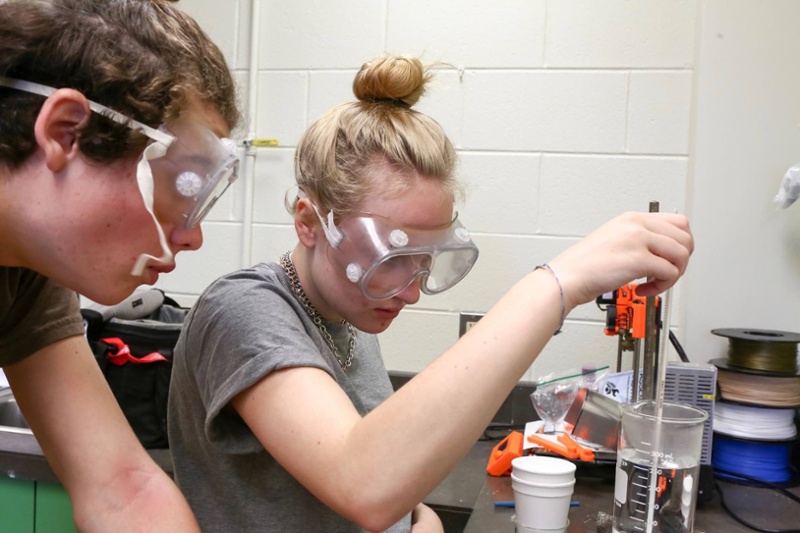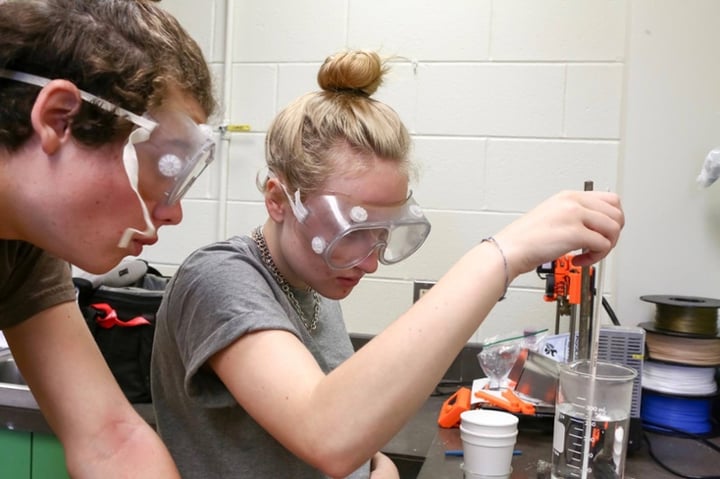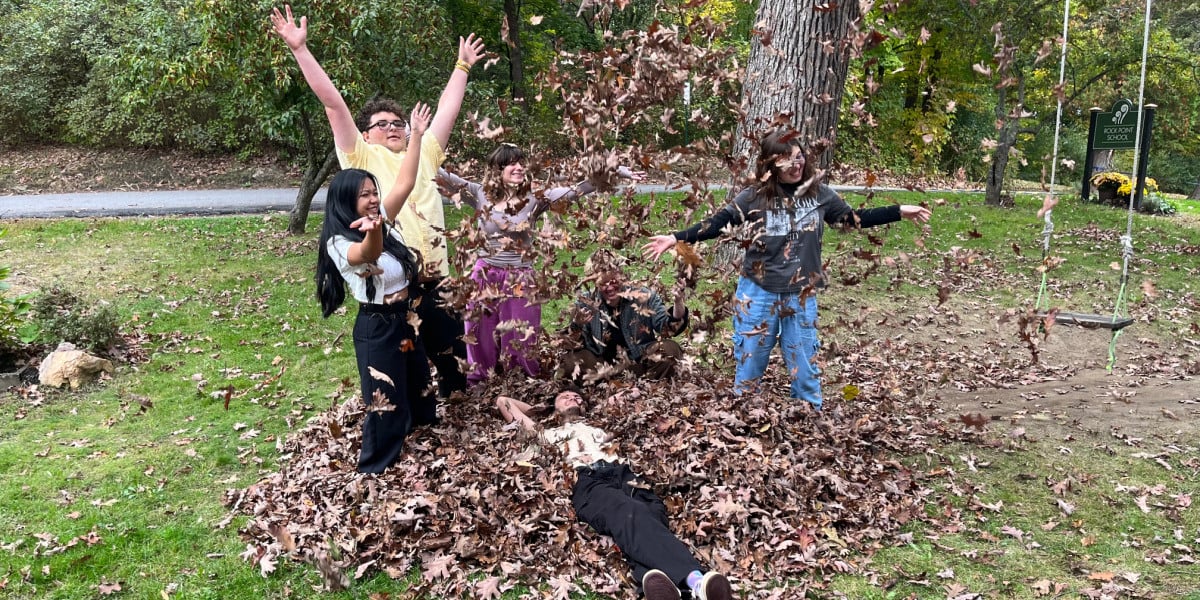Small is Beautiful: Education as if Every Student Really Mattered
In the small, beautiful, lakeside community of Burlington, there are both the advantages of a city — public transportation, rich cultural...


Perhaps it comes in the form of a perfect writing prompt, when you see a student’s eyes light up, their pencil start furiously scribbling. Maybe it happens as a student watches a chemical reaction take place in the science lab, or while they’re discussing today’s news in connection with the Civil Rights movement, or as they are guided through a museum and asked to compare the techniques of various artists. As an educator, I know it when I see it: the moment when a student reaches the fine line between challenge and frustration. It occurs when students are interested in the material, supported enough to keep up with the work, and challenged enough that they have to learn and practice new skills. This is when students grow, and when they make true progress.
Today, this “aha” moment has become the definition of academic rigor.
Rigor is a word that used to have the connotation of towering stacks of books, impervious concepts, and long lectures. The word is newly being used by educators to refer to that sweet spot where students have to dig deep to understand the material, and, in doing so, reach their true potential in the classroom.
Individualized Challenge
Rather than the idea of academic excellence being standardized and uniform, experts in education are starting to agree that excellence can look different for each student. We have used this philosophy for decades at Rock Point School, and have seen the best results from students when they’re challenged at an appropriate level for their individual needs. So, how do I know when a student is being offered rigorous academic work, or when they are succeeding at facing academic rigor?
Barbara Blackburn, educator, writer and speaker on the topic, gives a helpful framework for talking about academic rigor. She says that rigor means that all students are able to engage in high-level learning, though what constitutes high-level learning may differ from student to student. High-level learning means that students are not just taking in information and memorizing it, but working with it in an analytical way, combining various ideas, responding to what they read, and demonstrating their understanding in a variety of ways.
Blackburn gives four components of rigorous learning, and of how it helps students achieve this high-level learning. They are:
Expectations must be set appropriately, and they must be clear to students. In order to perform, students need to see what they are striving for. This could mean giving a successful example of an essay as students begin to write theirs, so they can see a final product, and aim to do something similar. At Rock Point, students receive rubrics ahead of time for their larger assignments, so they have an idea of what they are working on. Teachers will also post visuals in class to remind students of what a successful class period looks like.
Blackburn says that while students are learning, they need good, critical questions to respond to, so that they can think at a high level. Simply regurgitating facts is not my goal; rather, what are the ways I can ask students their opinions and ideas based on what they are learning? How can I ask them questions that help them engage fully with the material, make comparisons, and practice that high-level learning we are striving for?
One way to do this is to make sure students are relating to the material and instructors are helping them make connections to the real world. For example, when we read a classic play like The Crucible in my class, we talk about the historical context of the play, but also, we discuss how mob mentality, panic, and fear are part of our social and political landscape today.
It is my goal to move students forward in the skill areas I teach, and to help them make academic progress. This means they have to have appropriate support, help, accommodations, and check-ins along the way. Too often the idea of rigor, or engaged academic work, seems to forget the very basic component of support. At Rock Point, we see students succeed when they know that a teacher is supportive, their learning style is understood, and that they can always ask for help along the way. In my class, students know that I am always willing to make appropriate accommodations, help them work through problems, and find creative ways for them to demonstrate what they know.
Students must be offered multiple ways to demonstrate what they’ve learned. Blackburn encourages us to consider the verbs in our assignments; what are we having students do? [PDF] While taking tests is an important academic skill to practice for students, tests should not be the only way they show their understanding. What else can students do to demonstrate their learning? Some ways I have done this in my class are: having students lead a class discussion, make a physical map of an area, teach another class a lesson on their unit, rewrite the ending of a book, and any other dynamic exercises that demand they understand and interact with material at a high level.
Supporting students and challenging them can, and should, go hand-in-hand. Too often we lose sight of the importance of providing support in order to create a rigorous experience. When considering the right school for your child, it is easy to find out how many AP classes are taught at each school, but it can be difficult to find out how much engagement and challenge students are actually experiencing. The most rigorous programs are thinking about students as individuals, and knowing that academic rigor will look different for each of them.
If you are a parent exploring schools for your child, look for teachers providing multiple approaches to material, and always aiming for high-level learning experiences. The most rigorous classes are not the ones leaving students behind in a pile of books and homework, but rather the teachers and schools that are creatively finding ways to engage and challenge every student.

In the small, beautiful, lakeside community of Burlington, there are both the advantages of a city — public transportation, rich cultural...

Adolescence is a time of enormous growth and self-discovery. As teens navigate who they are, how they fit in, and what matters to them, they need...

“But what do you do in the winter?” is a question that I hear frequently from people outside Vermont when they learn about our small boarding and day...